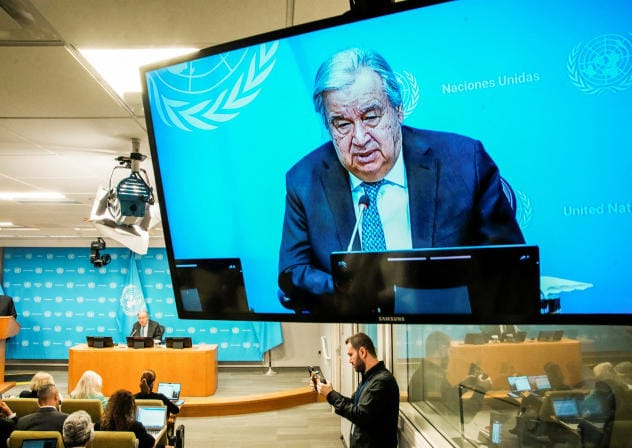Why Iran's attack on Gulf states mimics Iraq's assault on Saudi Arabia - analysis
Iran's attack might have the opposite effect, bringing Gulf countries closer together and enabling cooperation with the US and among themselves.

Iran's attack might have the opposite effect, bringing Gulf countries closer together and enabling cooperation with the US and among themselves.




Prime Minister Benjamin Netanyahu publicly pushed for strikes against Iran, while Saudi Arabia’s role appeared more complex.

One likely candidate to run the Islamic regime after the Ayatollah's death is Ahmad Vahidi, who was the IRGC deputy chief on the eve of the war.

Qalibaf said Iranian authorities had prepared scenarios “including” contingencies for the period after Supreme Leader Ayatollah Ali Khamenei, and pledged that Iran would “continue Khamenei’s path."

Although it turns out Khamenei was killed likely in the war's opening moments by around 30 bombs around 8:00 a.m. Saturday morning, the more intense response only came later.

One woman killed in central Israel following Iran missile barrage • Pahlavi publishes outline for democratic Iran • Khamenei's advisor, IRGC commander, both confirmed killed in strikes

Pahlavi expressed immense gratitude to US President Donald Trump for his role in the operation and for his words of encouragement to Iran's citizens.

At first dismissed as weak and indecisive, Khamenei seemed an unlikely choice for supreme leader after the death of the charismatic Ayatollah Ruhollah Khomeini.

The Iranian reports did not explicitly mention President Masoud Pezeshkian's ability to carry out his political duties.

Later, Iran's Ambassador to the UN Amir-Saeid Iravani said that the country was "exercising its inherent and lawful right of self-defense," in response to "aggression and large-scale war."

For decades, Western leaders dismissed Ali Khamenei’s language as rhetoric. His record shows ideology, not ambiguity, guided Iran’s strategy toward Israel, the US, and its own people.
